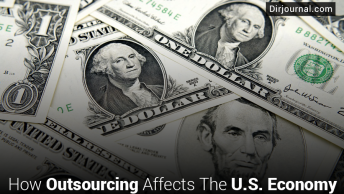They call it the “Ghosn effect,” when referring to the boss who they worry may be stretched so thin that he cannot manage either Nissan or Renault, as well as he was able to manage one company.
Renault is a French vehicle manufacturing company that produces cars, buses, vans, trucks and tractors. The company is well known for several revolutionary designs as well as motor racing.
The Renault-Nissan alliance was the first of its kind that involves a French and a Japanese company, each of them having their own brand identity. Renault has a stake of 44.4 percent in Nissan, the Japanese company; and Nissan has 15 percent stake in Renault. Carlos Ghosn, who was the CEO of Nissan, also became the CEO of Renault in 2005.
Today, the petulant shareholders confront the CEO of Nissan-Renault as they are perturbed with the share prices going down more than 30% this year. The wonderful impact the CEO had on Nissan when he turned around the floundering Japanese company almost a decade ago when he took over, is no longer seen.
Analysts say that the sales at Renault have flattened out, with profits sliding down 7.6% last year and they do not seem to be doing any better in 2008 either. Nissan is facing a similar situation, with the stock going down by 32% from the twelve-month high on flat profits in 2007 and with poor prospects for 2008.
The shareholders and analysts attribute it to one boss trying to do too many things at the same time; the CEO has a schedule that ordinary mortals cannot survive.
Carlos Ghosn, CEO of both Renault and Nissan Motors, responds to these allegations saying, “if you look at car-company tie-ups, such as Daimler-Benz buying Chrysler or Ford Motor buying Jaguar and Land Rover, there is only one global alliance that has added value, and that is Nissan and Renault.” He also points out that the two are earning billions even in a year of recession and slow-down.
He feels that his dual role as CEO is in keeping with the changing time, when automakers must be able to move fast to adapt to the changing tastes of people and tough regulations.
There were two major joint ventures in 2007, involving Nissan and Renault: two electric car projects in Denmark and Israel, a combined factory in Morocco and a project to design and build a $2500-$3000 car in India.
There is also a joint venture in Russia with AutoVAZ, to supply small cars to Chrylser, outsourcing Nissan’s pickup-truck manufacturing in the U.S., and agreeing to build small pickups for Suzuki Motor.
Renault-Nissan has plans of launching a whole range of electric vehicles by 2012 in all the large markets. It says these vehicles will be less expensive that the petrol models. Everything, except the batteries are said to be ready. They are currently looking into the charging cycles of the batteries and to use fast-charge systems that ensure quick recharges and increasing the mileage.
CEO of Nissan feels that although Nissan has to stay strong in the U.S., this market may not be great again, since it is saturated, as America has about 800 vehicles per 1,000 people when compared to less than 30 in India and china.
Nissan faces the challenge of standing the ground in the huge U.S. market place while racing to win the hearts of first-time car buyers in Brazil, China, Russia and other places.
Experts believe that lowering the costs of technology and production is crucial to making both companies more profitable. Nissan has currently tied up with Bajaj Auto for a car, tentatively called the ULC and to be sold at a wholesale price of $2500, in the Indian markets. This new facility will be built in Chakan, Maharashtra, India with 400,000 units per year in the first phase, and is expected to go on sale in early 2011 in India and later in other export countries. They say that U.S. may not be one of the export countries, but part of Europe will most probably see the ULC.
The CEO of Renault-Nissan wants to infuse his companies with the innovative and low cost Indian design thinking. He feels that India understands frugal engineering better than Europe or Japan.
In spite of certain setbacks experienced in the past few years, these are reasons enough for the hyper-driven Nissan-Renault to keep moving and pick up pace in the future.












